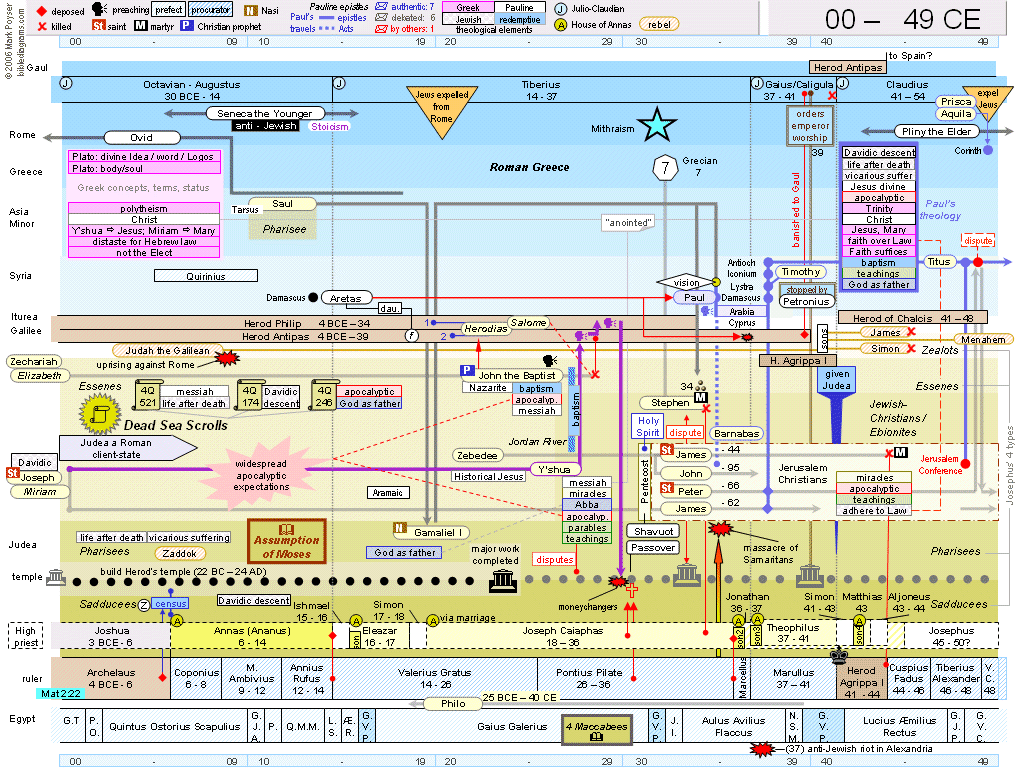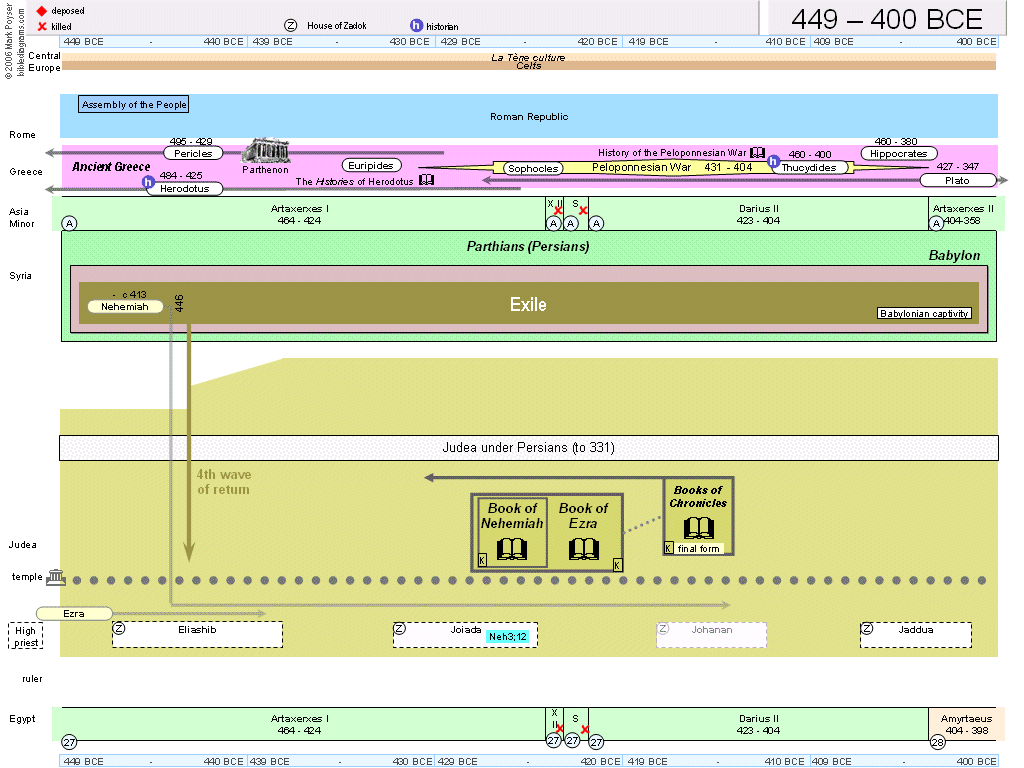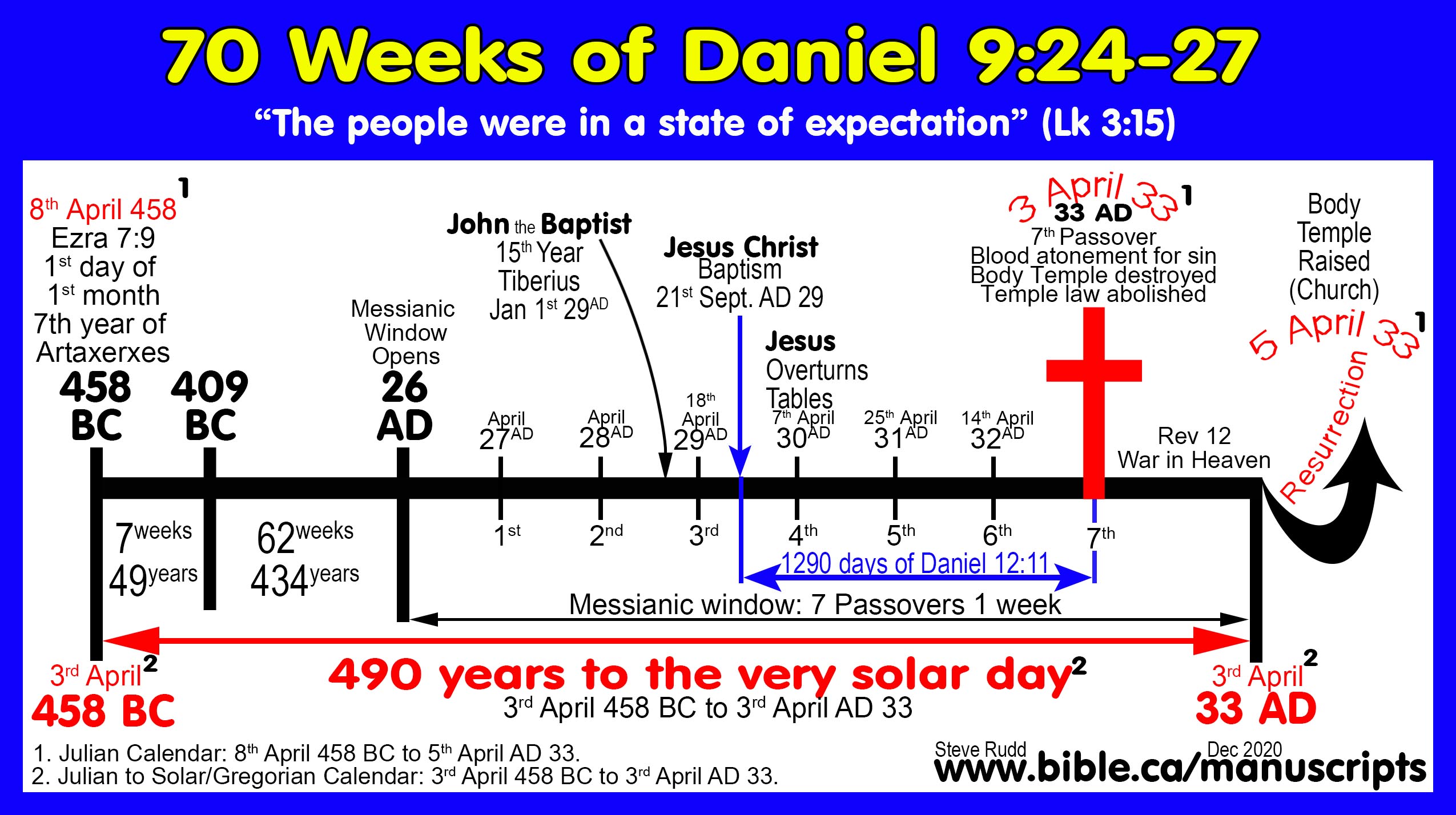Many folks wonder about specific timelines in scripture, particularly if there's a pattern, perhaps something that repeats every couple of millennia. It's a really interesting question, and people often look for hidden messages or cycles in ancient texts. So, a lot of people ask, "What happens every 2000 years according to the Bible?" This query, you know, gets at the heart of how we understand biblical prophecy and the flow of history as presented in God's Word.
When you explore the Bible for answers to questions about recurring events on a grand scale, like every 2000 years, you'll find that the scriptures don't actually lay out such a precise, repeating schedule. In fact, the Bible, as a matter of fact, presents history and prophecy in a way that doesn't rely on fixed, uniform cycles of that length. It's important, therefore, to look at what the Bible truly says, rather than trying to fit it into patterns it doesn't describe.
This article will help us think about how the Bible discusses time and future events. We'll explore why the idea of a 2000-year cycle isn't something directly taught in scripture, and what the Bible does focus on when it comes to God's timing and purposes. You might be surprised, you know, by the clarity found when we stick to the actual words of the Bible.
Table of Contents
- The 2000-Year Question in the Bible: A Closer Look
- How the Bible Talks About Time and Prophecy
- What the Bible Truly Emphasizes for the Future
- Practical Steps for Understanding Biblical Timelines
- Frequently Asked Questions About Biblical Timelines
The 2000-Year Question in the Bible: A Closer Look
When people ask, "What happens every 2000 years according to the Bible?", they're usually looking for a clear, repeating pattern of significant events. Perhaps they've heard theories that suggest specific happenings at these intervals. However, it's pretty important to note that the Bible itself doesn't actually present a cyclical pattern of events occurring precisely every 2000 years. This isn't a concept that you'll find explicitly taught or even hinted at in its pages. Some might try to line up certain events, but that's typically an interpretation, not a direct statement from the scripture itself.
The Bible does, you know, speak about different periods and ages, but it doesn't set them into neat 2000-year boxes. For example, the time from Adam to the Great Flood is a period of many centuries, and the time from the Flood to Abraham's call is another distinct era. These periods have varying lengths, so it's not a consistent two-millennium span. So, any idea of a fixed 2000-year cycle would be an outside idea brought to the Bible, rather than something derived directly from it. We, you know, really need to let the Bible speak for itself on these matters.
It's vital, therefore, to approach biblical study with an open mind, focusing on what the text plainly states. Trying to force a specific numerical pattern onto scripture can, in some respects, lead to misunderstandings or even disappointment if those patterns don't materialize. The Bible, you see, offers plenty of guidance on understanding God's plan without needing to invent complex numerical sequences. So, it's pretty clear that this specific question doesn't have a direct "yes" answer from the Bible itself.
- What Can U Do With Lemon Pulp
- Triple Braided Hair Down To Butt
- Stardew Valley Deluxe Shed Keg Layout
- Vinyl Record Displasy Frame
- Zoo Attractions Ideas
How the Bible Talks About Time and Prophecy
Instead of a fixed 2000-year cycle, the Bible often talks about time in terms of different dispensations or ages, each with its own characteristics and God's dealings with humanity. For instance, there was the period before the Flood, then the time of the Patriarchs, the era under the Law of Moses, and now the Christian era. These periods, you know, vary greatly in length and aren't uniform. The Bible tends to highlight key turning points in history, like the call of Abraham, the Exodus from Egypt, the giving of the Law, or the arrival of Jesus Christ. These are significant moments, but they don't fall into a neat 2000-year rhythm.
Biblical prophecy, too, is presented in a way that focuses on specific events, the rise and fall of kingdoms, and the ultimate fulfillment of God's purposes. It often speaks of "the last days" or "the appointed time," but it doesn't give us a recurring 2000-year countdown. As a matter of fact, the Bible encourages a sense of readiness and vigilance, rather than trying to pinpoint exact dates or cyclical patterns. This approach, you know, keeps our focus on living in a way that pleases God, rather than speculating about precise timelines.
Major Biblical Eras and Their Durations
Let's consider some of the major periods mentioned in the Bible. From Adam's creation to the Great Flood, for instance, the Bible records a span of over 1600 years. This period, you know, saw humanity's early development and increasing wickedness. After the Flood, the world began anew, leading to the time of Abraham, which was still many centuries later. These are significant stretches, but they don't quite fit a 2000-year mold. So, you can see, the Bible's historical narrative has its own rhythm.
Then, from Abraham's time to the giving of the Law through Moses, another substantial period passed. And the era under the Mosaic Law lasted for over 1500 years until the arrival of Jesus Christ. These historical markers, you know, are very important in understanding God's plan. They show a progression, a developing purpose, rather than a repeating cycle. The emphasis, you see, is on God's unfolding will through different periods of human history, not on a numerical pattern. It's really quite fascinating to trace these paths.
Understanding God's Timing in Scripture
The Bible often speaks about God's timing as something entirely in His hands, something not always revealed to humans in precise, fixed intervals. We read about "the appointed time" or "the fullness of time" when certain events would occur, like the sending of Jesus Christ. This means, you know, that God acts according to His perfect schedule, which isn't necessarily bound by human-made numerical patterns. It's a bit like a master planner who knows exactly when to execute each phase of a grand project.
When it comes to understanding God's Word, Jehovah's Witnesses, as mentioned in "My text," hold meetings for worship twice each week, as Hebrews 10:24, 25 encourages. This is to gain a deeper, accurate grasp of biblical truths, rather than speculating on unsupported theories. They believe that understanding scripture involves careful study and application, not trying to force numerical patterns onto prophecies. It's a very practical approach, you know, to learning what the Bible actually says. They focus on what God has revealed, not on what He has not.
What the Bible Truly Emphasizes for the Future
Instead of focusing on a 2000-year cycle, the Bible puts its emphasis on certain pivotal future events. These include the return of Jesus Christ, the establishment of God's Kingdom, and the promised resurrection of the dead. These are not presented as repeating cycles but as singular, definitive events that will bring God's purposes to a complete fulfillment. So, you know, the focus is on a culmination, not a recurrence. It's a forward-looking perspective, really.
The scriptures often encourage believers to be ready and watchful for these future events, rather than trying to calculate specific dates. This emphasis on readiness means living a life that reflects biblical principles and understanding God's will. It's a call to action in the present, you know, not a puzzle to solve about future dates. This approach helps people stay grounded in their faith and avoid the disappointment that can come from unfulfilled date predictions.
The Christian Era and Future Hopes
The current Christian era began with Jesus Christ's ministry, death, and resurrection, which occurred nearly 2000 years ago. This period is marked by the spread of the good news of the Kingdom of God and the gathering of followers of Christ. While this period is approaching the two-millennium mark, the Bible doesn't suggest that something specific *must* happen precisely at this 2000-year point as part of a recurring pattern. It's more of a significant historical milestone within a unique era.
The Bible's hope for the future centers on the establishment of God's Kingdom, which will bring about lasting peace and justice on earth. This is a very real hope, not a vague idea. It's also tied to the resurrection, where those who have died will be brought back to life. As "My text" indicates, Jehovah's Witnesses believe that when a person dies, his life ends, as God told Adam: "dust you are and to dust you will return" (Genesis 3:19). This means the hope of a future resurrection is incredibly important, as it's the means by which life is restored. So, you know, the Bible's future promises are concrete, not cyclical.
The Importance of Accurate Biblical Study
To truly understand what the Bible says about time and future events, it's really important to engage in accurate and systematic study. This means letting the Bible interpret itself and not bringing outside theories to it. For instance, "My text" mentions that Jehovah's Witnesses offer a free Bible study program. This program helps people understand the Bible's teachings clearly, without adding or subtracting from what it actually says. It's a very helpful resource for anyone seeking truth.
Such a study approach helps us avoid misconceptions, like the idea of a fixed 2000-year cycle. It also clarifies other important teachings, such as the true condition of the dead. As "My text" explains, "not all of those beliefs can be true" when it comes to what happens after death. The Bible, you know, gives a straightforward answer: death is the opposite of life. This clear teaching, based on scriptures like Genesis 3:19, helps people gain comfort and a solid hope for the future, rather than relying on confusing, unproven ideas. So, it's pretty clear that careful study is key.
Practical Steps for Understanding Biblical Timelines
If you're curious about biblical timelines and prophecy, the best approach is to read the Bible for yourself, very carefully. Start by getting a good, easy-to-understand translation. Focus on the narrative flow and the direct statements about history and future events. Don't try to force specific numerical patterns onto the text, especially if they aren't clearly stated. This way, you know, you can build a solid understanding directly from the source. It's a much more rewarding experience, too.
Consider joining a free Bible study program, like the one offered by Jehovah's Witnesses, which "My text" mentions. These programs are designed to help you grasp the Bible's teachings in an organized way. They can help you see how different parts of the Bible fit together, providing a complete picture of God's purposes. You can learn more about Bible study on our site, which offers a straightforward path to understanding. It's a great way, you know, to get answers to your questions directly from scripture.
Also, attending meetings for worship, like those held by Jehovah's Witnesses, can be really beneficial. These gatherings, open to everyone, help you learn from the Bible and discuss its practical application in daily life. As "My text" points out, these meetings help you understand what happens at our meetings. They are a place where you can deepen your appreciation for God's Word and its timeless wisdom. So, you know, engaging with others who study the Bible can truly enrich your understanding.
Finally, remember that the Bible's main message is about God's love for humanity and His purpose to restore paradise on earth through His Kingdom. This message is far more important than any speculative timelines. For instance, Jehovah's Witnesses observe the annual Memorial of Jesus Christ's death, which will be on April 2, 2026, as "My text" mentions. This event is a clear, biblically commanded observance, showing the focus on what God has truly revealed. You can find more information about this special event and other biblical truths by linking to this page here. It's a very meaningful way to reflect on God's love.
For further reading and to explore biblical texts in their original context, a reliable resource is a Bible website. You might check out sites like jw.org for comprehensive biblical information and publications.
Frequently Asked Questions About Biblical Timelines
Does the Bible predict specific events in 2000-year intervals?
No, the Bible does not explicitly predict events that occur in precise 2000-year intervals. While some individuals or groups outside of mainstream biblical teaching might propose such patterns, these ideas are not directly supported by the scriptures themselves. The Bible, you know, speaks of various periods and ages, but their lengths are not uniform or set to a 2000-year cycle. It's important, therefore, to rely on what the Bible clearly states.
Are there significant biblical events separated by 2000 years?
When you look at major biblical events, you won't find a consistent 2000-year separation between them. For instance, the time from Adam to the Flood, or from Abraham to Jesus, are significant periods, but they don't neatly align to exact 2000-year gaps. The Bible, you see, focuses on the progression of God's purposes through history, marked by key turning points, rather than by strict numerical intervals. So, it's pretty clear that this kind of pattern isn't present.
What is the biblical understanding of time and prophecy?
The Bible presents time as something under God's control, with specific "appointed times" for His purposes to unfold. Prophecy often focuses on future events, such as the establishment of God's Kingdom and the return of Jesus Christ, but it doesn't give precise dates or cyclical patterns. Instead, the Bible encourages a focus on readiness and living according to God's will. As a matter of fact, it emphasizes understanding God's Word accurately, rather than speculating on unrevealed timelines. This approach, you know, helps keep our attention on what truly matters.


